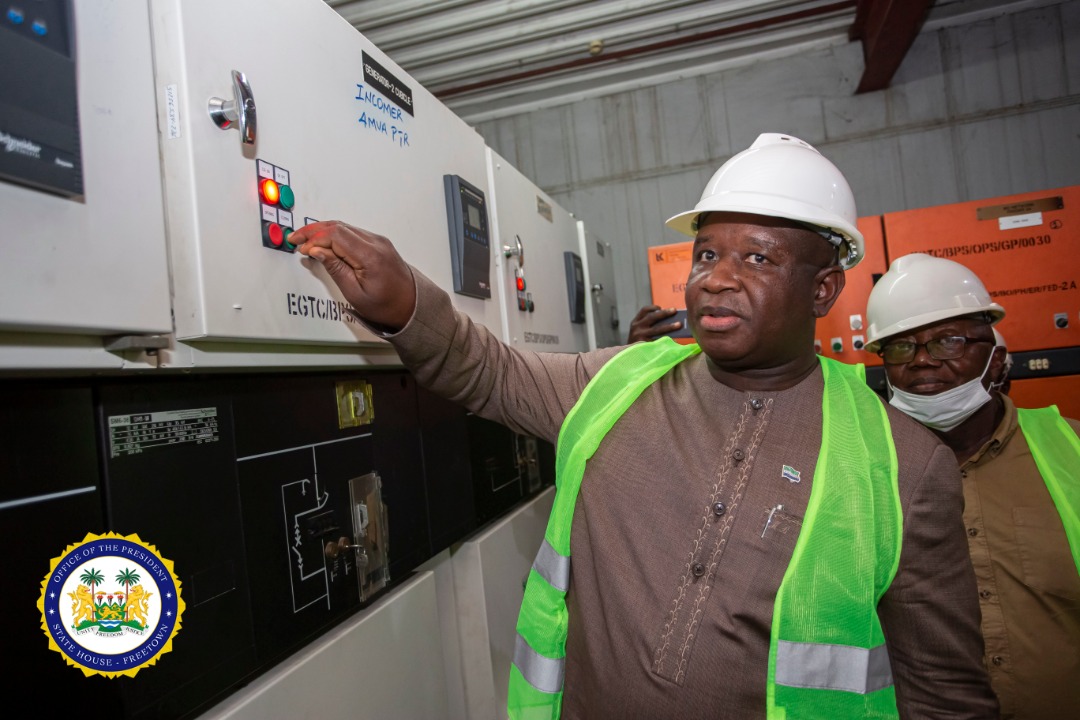President Dr Julius Maada Bio has officially switched on the Côte d’Ivoire-Liberia-Sierra Leone-Guinea, CLSG, Electricity Interconnection line at Teloma to bring power to south and east of the country.
For the specific case of Sierra Leone, the project involves the construction of approximately 530km, 225 kV power line through seven districts Pujehun, Kenema, Kono, Tonkolili, Koinadugu, Bombali, Kambia and Karene, according to TRANSCO CLSG, the regional power interconnection facility owner and transmission service provider.
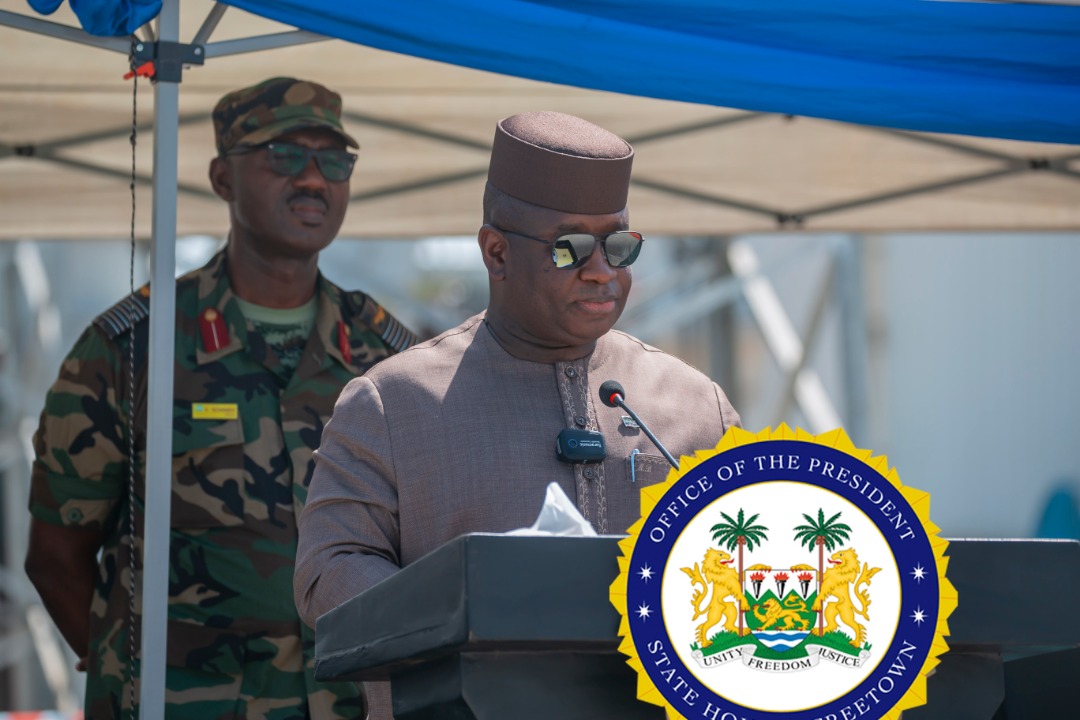
The President emphasised that: “The lesson from developing economies is simple. More electricity means more economic activity and better jobs, more profitable private capital investments, increased manufacturing and technological capacity, increased food production, more innovation, better healthcare and education, greater use of telecommunications, and better quality of life in general”.
He also thanked key development partners like the World Bank, the African Development Bank, GiZ and the international community, for supporting the project to completion, noting that as a Government they had long shared their views with those partners that the lack of accessible, reliable, and affordable electricity was a constraint to economic growth and national development.
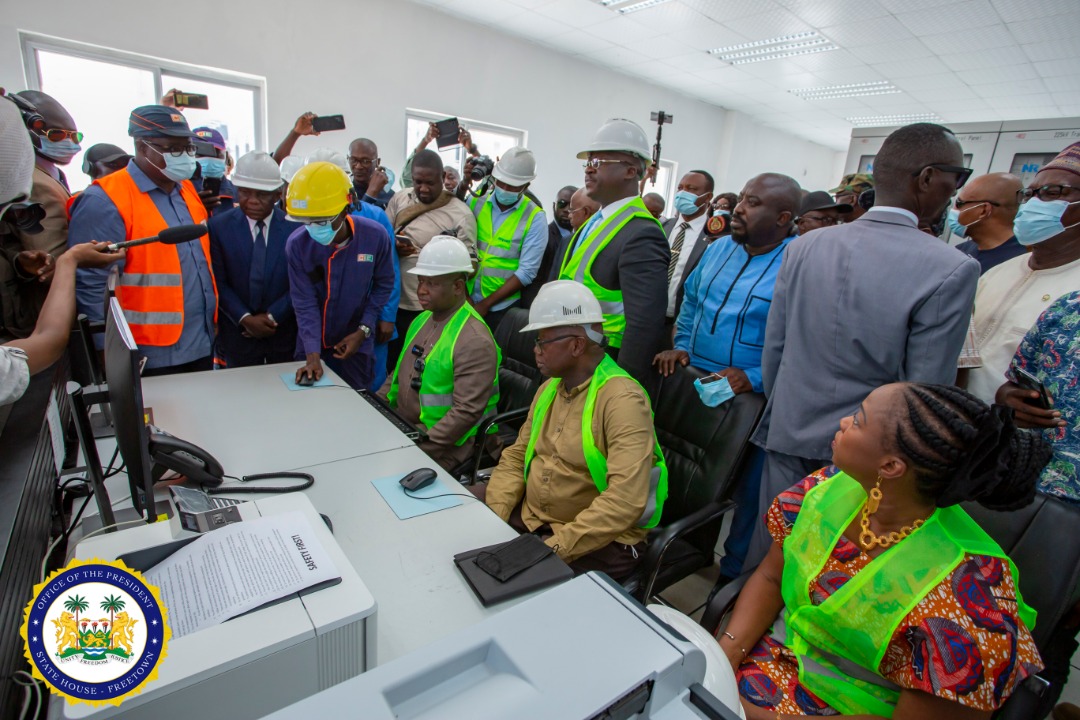
“So, for us, as a Government, more energy – especially sustainable and affordable energy, sits well with our country’s development needs and our development agenda. Energy is indeed a critical cross-enabler and a critical driver of development.
“We are, therefore, eager to use the network to attract investments in small scale manufacturing, agriculture, the service sector, and other small and medium enterprises that enhance the value-chain in diverse areas of the country,” he said.
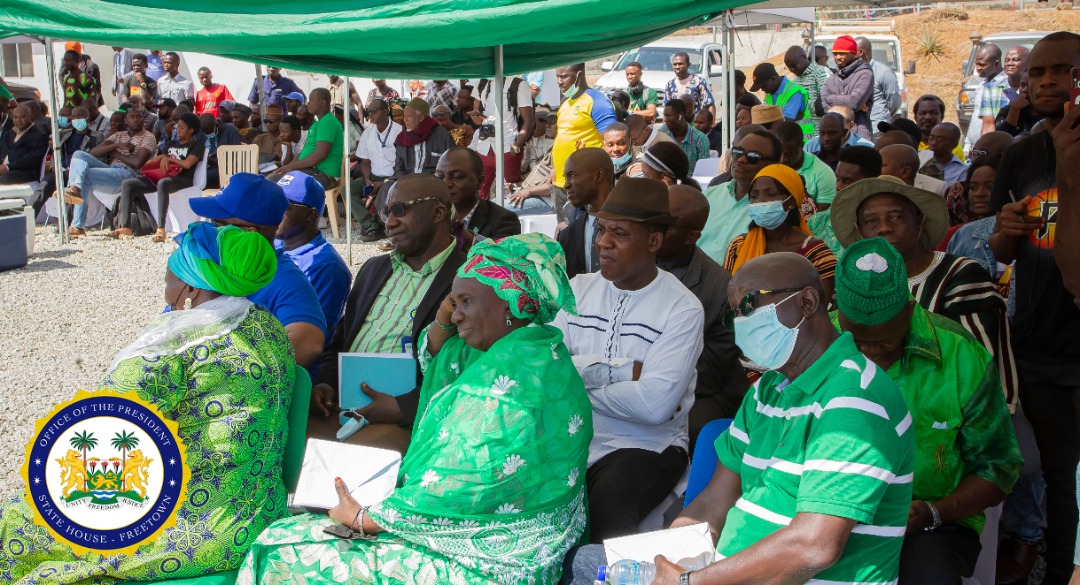
President Bio further disclosed that his Government had put in place a number of incentives for private companies seeking to locate to rural or peri-urban areas, adding that the availability of electricity, land, skilled and educated youthful populations in Kenema and Bo, would make that decision easier for private investors.
“Let me also thank the teams from TRANSCO CLSG, CI Energies/CIE, the Ministry of Energy, the Ministry of Finance, EDSA, and EGTC. We owe you a debt of gratitude for working really hard to ensure today’s milestone event. Thank you,” he said.
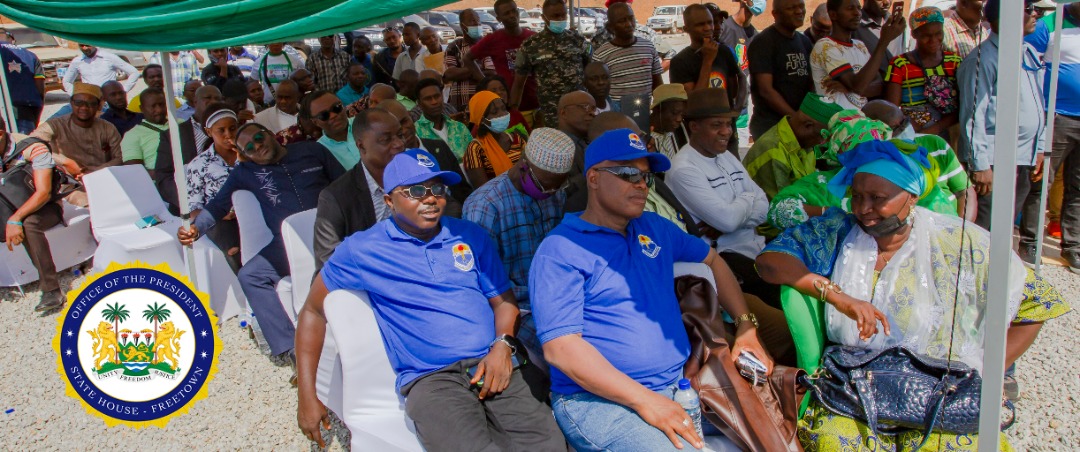
General Manager of TRANSCO CLSG, Mohamed Sheriff, recalled that within its master plan, the West African Power Pool had planned to accelerate several regional interconnection line projects, including a transmission line to interconnect the states of Côte d’Ivoire, Liberia, Sierra Leone and Guinéa.
“The CLSG Project is a multinational investment operation and is financed by 4 donors namely, the World Bank, the European Investment Bank, the KfW and the African Development Bank.
“The four beneficiary countries have provided counterpart fundings for the payments of Resettlement Action Plans and Interest accrued during construction and duty-free concessions,” he said.
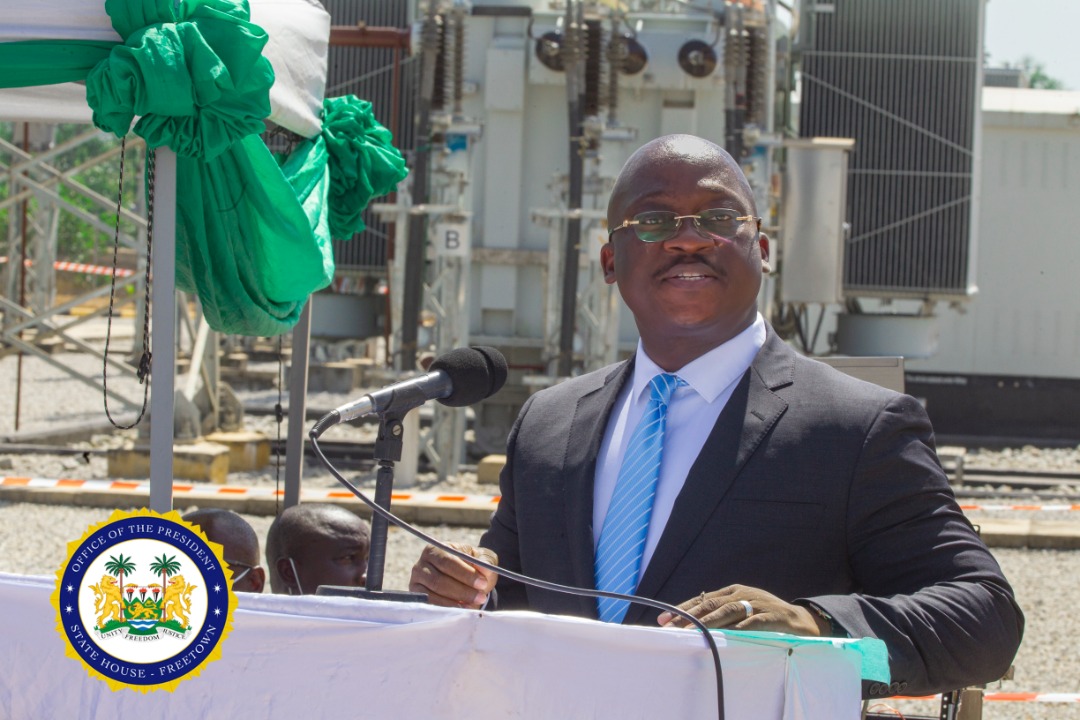
Minister of Energy, Alhaji Kanja Sesay, recalled and explained the long tough journey to delivering on the CLSG project.
“Your Excellency, I am proud that through your visionary leadership, we have moved from 11% access in 2018 to 31% currently. Under the Rural Electrification Component of the CLSG project, we will electrify some 27 communities along the transmission line corridor, including Teloma, Hanga Town, Panderu, Ngelehun Mano Junction, Largoh, Ngeihun, Panguma, Gorahun, Gbeworbu, Gegbema, Jewahun, Levuma and many more,” he said.
He added that the advent of electricity would be a transformative process in the lives of people in the rural communities, who would no doubt seize the opportunity to elevate themselves out of poverty.
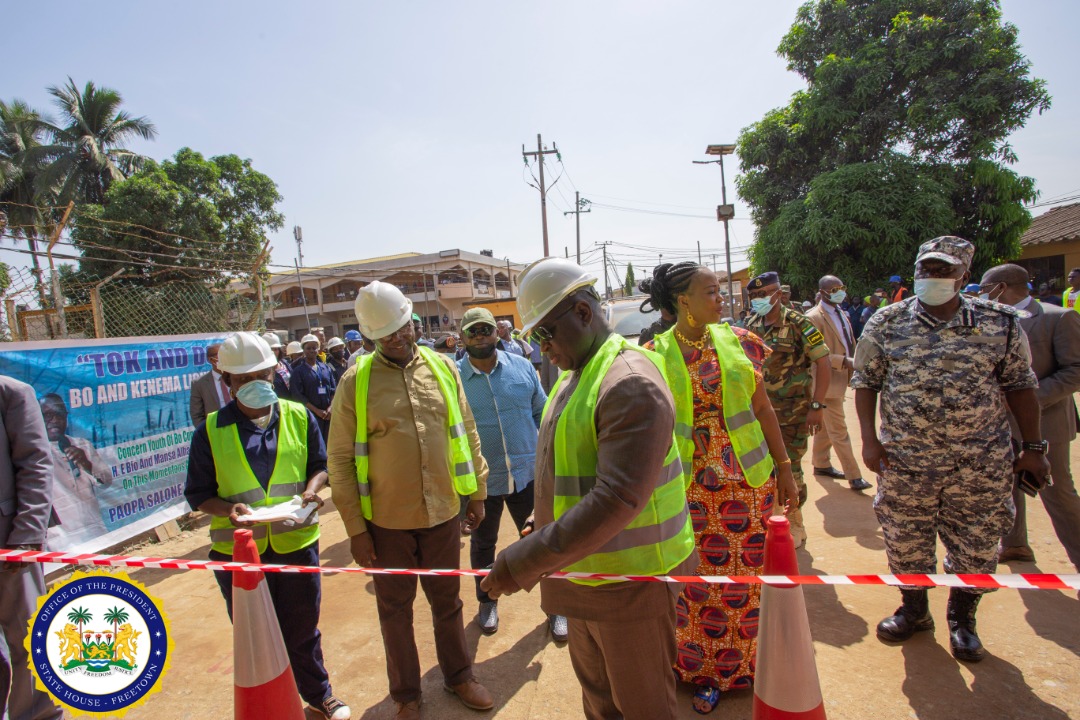
“Your Excellency Sir, as you are aware, we have spent quite a considerable amount of finances on this project in the forms of duty and tax waivers, provision of liquid cash payments for the compensation of Project Affected Persons and the EDSA’s capital payment to TRANSCO CLSG.
“This is a manifestation of our commitment to ensuring that this project is successful. As a government, we are painfully aware that electricity is not free. Good, affordable, 24-hour electricity to these towns and surrounding villages, will require pledges by all consumers to pay, and at the same time, to become watchdogs to report instances of theft and improper connections anywhere,” he urged.


